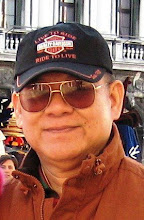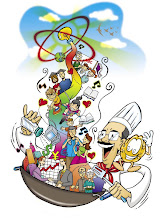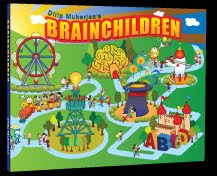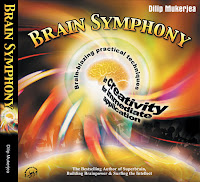 3M’s chairman and CEO, Livio D. DeSimone described the new role of the leader as “one of creation and destruction~supporting individual initiative while breaking down bureaucracy and cynicism,” essentially removing barriers to progress. Such a leader is in service to his or her followers, not commanding and concussing, but clearing a path for advancement.
3M’s chairman and CEO, Livio D. DeSimone described the new role of the leader as “one of creation and destruction~supporting individual initiative while breaking down bureaucracy and cynicism,” essentially removing barriers to progress. Such a leader is in service to his or her followers, not commanding and concussing, but clearing a path for advancement.SERVANT LEADERSHIP
Servant-Leadership is an expression coined by Robert Greenleaf. In his words:
“The servant leader is servant first… It begins with the natural feeling that one wants to serve, to serve first. Then conscious choice brings one to aspire to lead. He or she is sharply different from the person who is leader first, perhaps because of the need to assuage an unusual power drive or to acquire material possessions.
For such it will be a later choice to serve – after leadership is established. The leader firs
 t and the servant-first are two extreme types. Between them there are shadings and blends that are part of the infinite variety of human nature.”
t and the servant-first are two extreme types. Between them there are shadings and blends that are part of the infinite variety of human nature.”Source: 'The Servant As Leader' published by Robert Greenleaf (1904-1990) in 1970.
Greeleaf goes on to ask whether those served grow as persons and if they, while being served, become healthier, wiser, freer, more autonomous, more likely themselves to become servants?
Furthermore, he expresses concern towards the least privileged in society, whether they will benefit, or, at least, that they not be further deprived.
The concept of traditional autocratic andhierarchical modes of leadership are being phased out. Focus has shifted to the arena of workers and the enhancement of their personal growth.
Through teamwork and community, institutions can become paragons of societal excellence; with uncompromising high standards of ethics, care and compassion, the servant as leader becomes an example of a spiritual guide on the river of life.
“Most people in big companies today are administered, not led. They are treated as perso
 nnel, not people.”
nnel, not people.”~ ROBERT TOWNSEND, American business executive, CEO of Avis car rental group, and author. 'Further Up the Organisation' (Alfred A. Knopf, New York, 1970; revised edition Micahel Joseph, London, 1984)
"While in the past, many managers could succeed by imitating another company’s strategy or organisational model, today’s leaders are forced to invent, not copy: there are no surefire strategies or models to copy. Above all, the adaptive manager today must be capable of radical action ~ willing to think beyond the thinkable: to reconceptualise products, procedures, programs and purposes before crisis makes drastic change inescapable."
~ ALVIN TOFFLER, American scholar, lecturer and author. 'The Adaptive Corporation' (Gower, Aldershot, Hampshire, 1985)
[Excerpted from the 'Lifescaping' seminar participant's manual. The 'Lifescaping' seminar is conducted by Dilip Mukerjea about four times a year under the auspices of the Singapore Institute of Management.]
















No comments:
Post a Comment